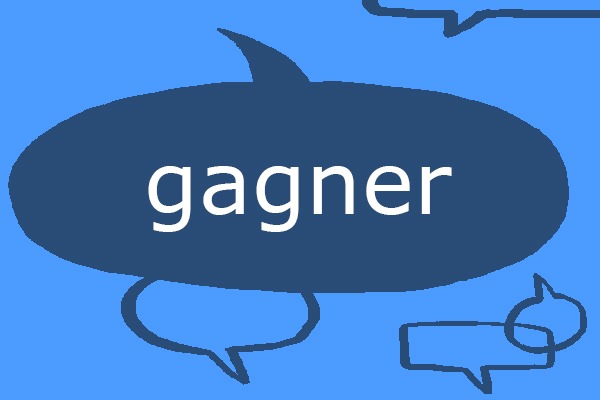Welcome back, French learners. Ready to take a look at our next word of the week? This time, it’s the verb gagner.
To hear how to say this aloud, you can listen to the audio pronunciation below:
To conjugate the verb gagner in French, you can follow the rules for regular -er verbs. For a refresher on some of these tenses, visit our Easy Learning French Grammar pages on conjugating regular -er verbs in the present, present subjunctive and imperfect tense.
But before thinking about how to conjugate this verb, let’s consider what it means. The main translation of gagner is to win or to gain. However, like many of the words we look at, there can be lots of different translations.
Let’s look at the use of gagner in a few different contexts:
Mais non, je t’invite ! J’ai gagné au bingo hier soir. No, it’s my treat! I won at the bingo last night.
C’est fini – ils vont gagner les élections. It’s over – they’re going to win the elections.
Que ferais-tu en premier si tu gagnais au loto ? What would you do first if you won the lottery?
gagner quelqu’un to win somebody over
avoir tout à gagner to have everything to gain
gagner sa vie to earn a living
gagner beaucoup d’argent to earn a lot of money
Michel gagne sa vie avec sa chaine YouTube. Michel makes a living with his YouTube channel.
Sometimes you’ll need to be careful with its meaning when it comes to certain contexts – that’s why reading the whole sentence before translating is always important.
With the example below, you might at first understand the sentence to mean ‘I am going to win or earn 75 euros’, but once you see the word remise, meaning discount, there’s another translation that can come into play:
Je vais gagner 75 € grâce aux remises. I’m going to make a saving of 75 euros thanks to the discounts.
This idea of saving also comes up in other contexts with the verb gagner:
gagner du temps to save time
gagner de la place to save space
Elles gagneront du temps en prenant l’autre chemin. They will save time by taking the other route.
We hope that you’ve gained some invaluable knowledge this week about the ins and outs of using gagner. We’ll see you next time for yet another interesting French word.
Written by Holly Tarbet, freelance copywriter and editor.
All opinions expressed on this blog are those of the individual writers, and do not necessarily reflect the opinions or policies of Collins, or its parent company, HarperCollins.




collins_dictionary_official
The home of living language. #wotd #wordlovers #collinsdictionary
Read our word of the week definitions and blog posts: